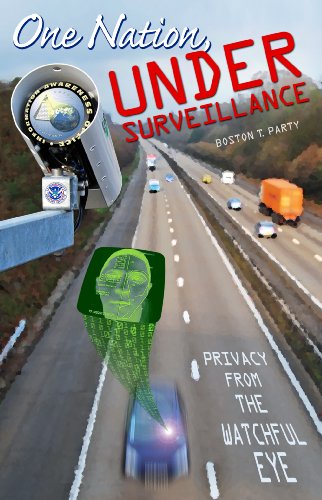What have you got to hide? The answer may shock you: If you’re like most Americans, you have far more than you realize that you need to be hiding, and not doing so may be putting you and your family in grave danger.
In his new book, Three Felonies a Day, attorney Harvey Silverglate holds that the typical American professional commits an average of three federal crimes a day, just going about their daily business, without even realizing it. And the only thing keeping them out of prison – make that keeping you out of prison – is the fact that federal prosecutors haven’t looked at you yet. “No social class or profession is safe from this troubling form of social control by the executive branch,” reads a statement on the book’s Web site, “and nothing less than the integrity of our constitutional democracy hangs in the balance.”
While Three Felonies a Day illustrates the problem quite well, today I want to talk about solutions. Likely you have never thought you needed to protect yourself from the government. But you probably weren’t aware that so many federal laws are “impossibly broad and vague” that you were a “criminal” several times over today, just for going to work, picking up your kids, and eating dinner. Moreover, the concept of criminal intent has been largely removed from the law, so you can be imprisoned even if you had no idea what you were doing was against the law.
 Three Felonies a Day: ...
Best Price: $10.99
Buy New $32.95
(as of 04:35 UTC - Details)
Three Felonies a Day: ...
Best Price: $10.99
Buy New $32.95
(as of 04:35 UTC - Details)
Under the English common law we inherited, a crime requires intent. This protection is disappearing in the U.S. As Mr. Silverglate writes, “Since the New Deal era, Congress has delegated to various administrative agencies the task of writing the regulations,” even as “Congress has demonstrated a growing dysfunction in crafting legislation that can in fact be understood.” Prosecutors identify defendants to go after instead of finding a law that was broken and figuring out who did it. Expect more such prosecutions as Washington adds regulations. – Wall Street Journal
One of the most powerful solutions against the sorts of miscarriages of justice that land people like you in prison is privacy. Privacy makes it much harder for an overzealous prosecutor to spin your perfectly innocent activities into “crimes.” Not to mention it also provides protection against the more mundane threats of identity thieves, psychotic ex-spouses, and so on.
A few people figured out long ago that the federal government wasn’t actually here to help, and one of them, “Boston T. Party,” (a pen name) in 1996 wrote Bulletproof Privacy, now out of print. The thin volume, most of which is now quite dated, provided a how-to manual with practical solutions for increasing your personal privacy. Boston has since rewritten and expanded it, and the new book, One Nation, Under Surveillance, is three times the size, and has at least three times the practical solutions for protecting yourself.
(I met Boston at this year’s New Hampshire Liberty Forum where he spoke on gun rights in the U.S. after the D.C. v. Heller case. He graciously sent me a signed copy of One Nation, Under Surveillance for free. Unfortunately it got buried under a huge stack of papers on my desk for several months and I only recently found it again.)
 One Nation, Under Surv...
Best Price: $3.80
(as of 06:20 UTC - Details)
One Nation, Under Surv...
Best Price: $3.80
(as of 06:20 UTC - Details)
Privacy is an insurance policy against oppression. Privacy allows a tyrannized citizenry to think independently, freely, and clearly. (Imagine if book stores were regulated as gun stores!) To speak out, network, and organize against unruly government – all of this in perfect accord with your natural rights, and in tradition with our American history and Constitution. We did not form the servile institution of government for the goal of limitless obedience to that servant. Neither did the States federate themselves under the Constitution for the utter dissolution of their own autonomy and prerogatives. . . .
A government which knows everything about its people is an unassailable government, for the people can no longer safely congregate nor precipitate. In an Orwellian state in which all your communications, transactions, and associations are monitored/approved, from whence comes any possible readjustment – much less a successful revolution from it? . . .
When privacy goes, the people have in a sense “thrown away the key” to their shackles. Think of your decreasing privacy as being measured for a tailored straightjacket.
What do you have to hide? Today, perhaps nothing. Next year, maybe a lot depending on new information and revised priorities. Privacy is a comprehensive insurance policy. Keep up the premiums, even if you’re not quite sure why.
November 17, 2009




